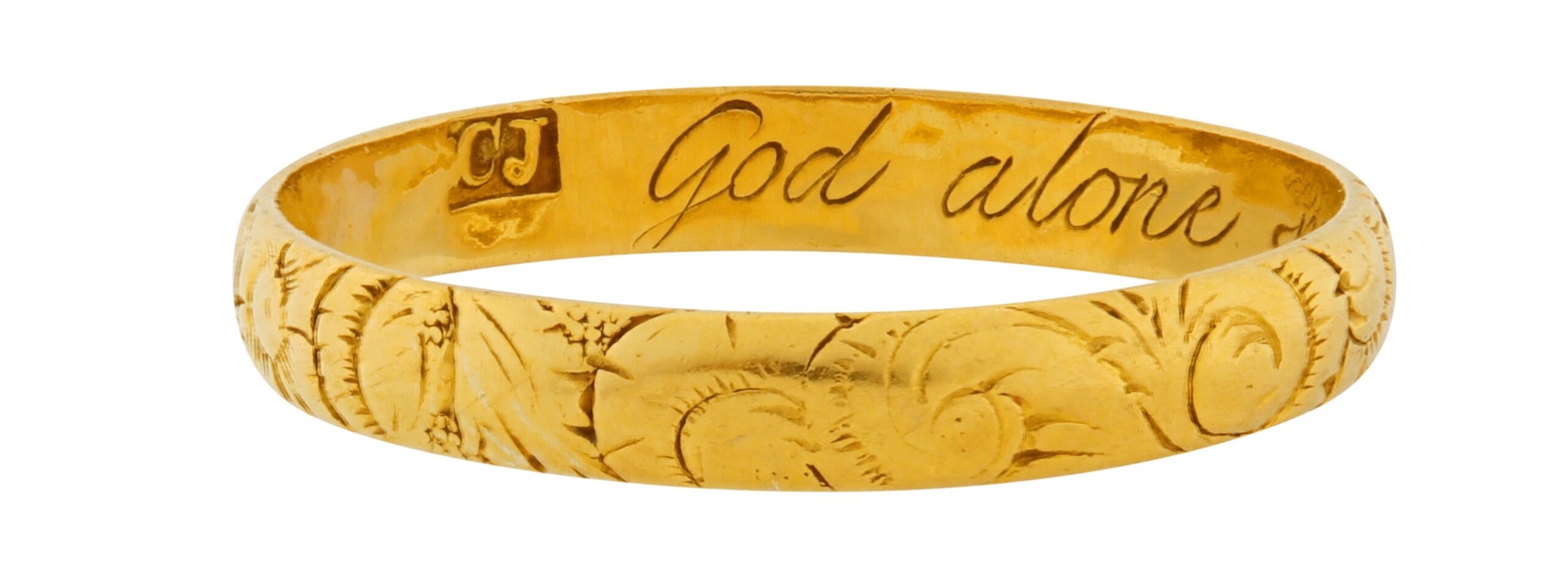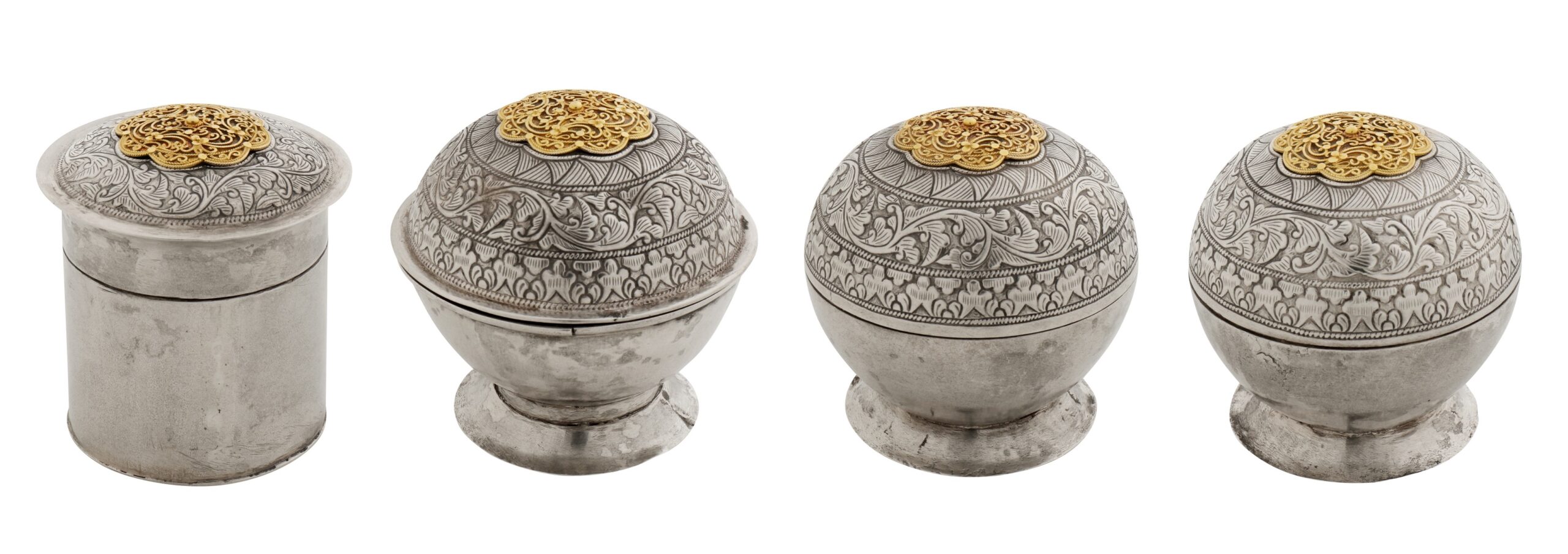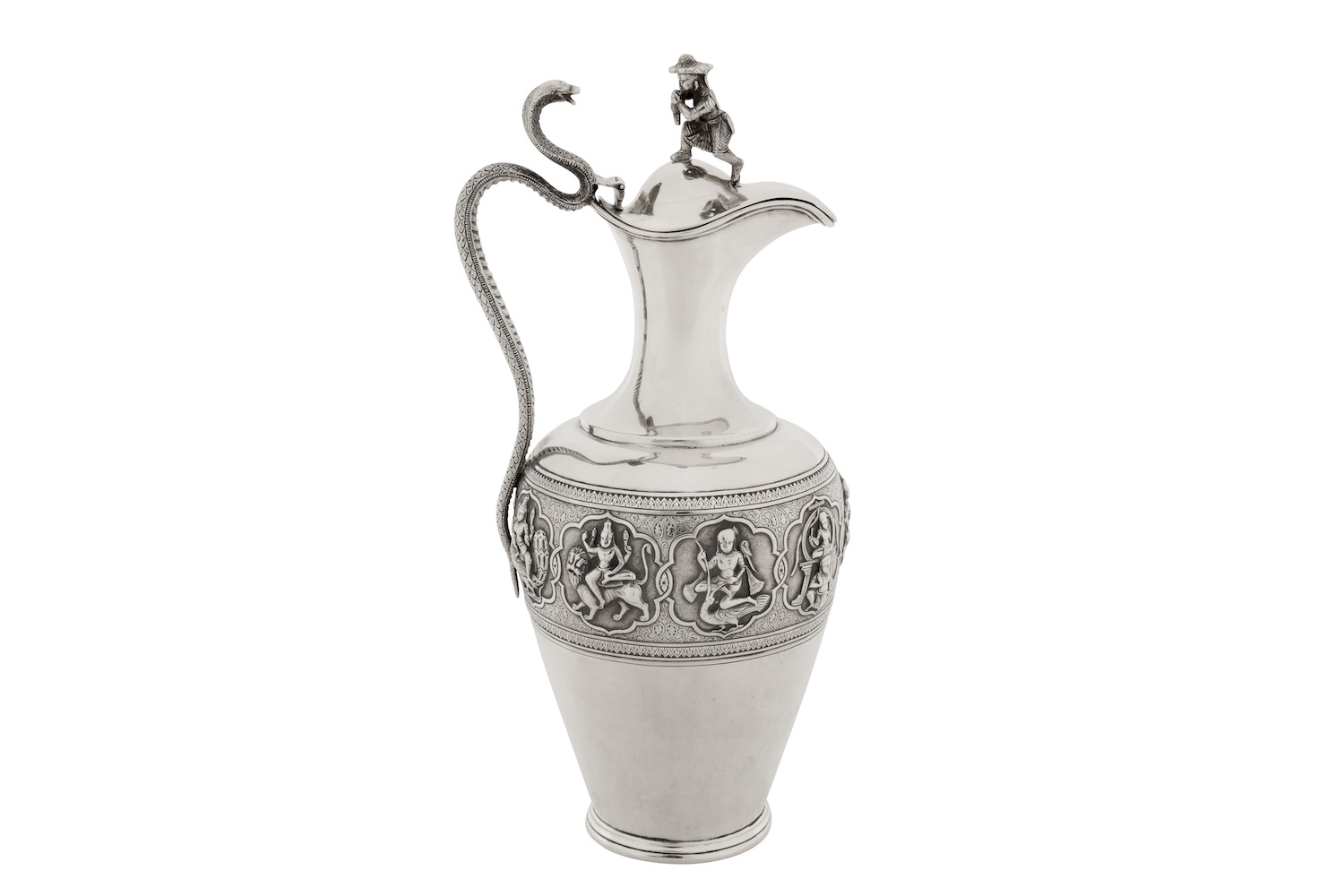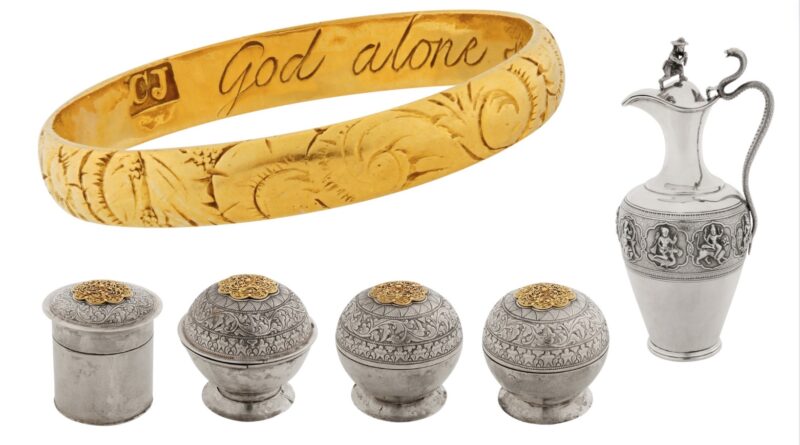Scottish gold posy ring shines in sale
Discovered in a bag of modern gold jewellery, most of it of little more than bullion value, a rare Scottish provincial gold posy ring sold for £1,900 at Chiswick Auctions recent sale. Based on the gold price on the day, its intrinsic value was around £110.

Engraved to the interior with the motto or ‘posy’ reading God alone made us two one, the ring is also struck with the maker’s mark CJ for the Inverness goldsmith Charles Jamieson (active 1797-1819).
Specialist John Rogers, head of the silver department at the west London auction house, immediately recognised its potential. “Goldsmiths from before the early 19th century rarely used the letter J (instead I sufficed) so with the unusual combination of initials there was no doubt that this was for the Inverness maker Charles Jamieson”.
The auction house said a reasonable corpus of silver survives from this maker, mostly flatware, but also wine labels, Luckenbooth brooches, toastracks, and quaiches, but a gold ring is a remarkable rarity.
Silver sales of Chiswick Auctions are known for including a curated offering of non-European silverware. A rare addition to auction of Silver and Objects of Vertu was a set of four unmarked gold mounted silver boxes made in the Lower Perak region of Malaysia c. 1900. They were used to hold a beeswax and coconut oil salve that would keep the lips moist while chewing betel leaves. Their sale at £1,900 comes ahead of soon-to-be-published book on the topic, Michael Backman’s Malay Silver and Gold – Courtly Splendour from Indonesia, Malaysia, Singapore, Brunei and Thailand. The boxes were contested by two collectors.

Raj period Indian silver continues to attract great interest in the year following the extraordinary prices realised in the Stewart Collection (offered by Chiswick Auctions in February 2023). It is the pieces by eminent firms or those made to uncommon forms that command most attention.
An example of the famous Swami pattern ewer made by Peter Orr and Sons of Madras c.1880 achieved £4,400. This neoclassical form, worked with a central band of nine Indian gods, was made by a number of silversmiths working in the subcontinent. A Bangalore version of this jug marked for A. Bhicajee and Co of Bombay was sold as part of the Stewart collection for £4,000.

A Cutch silver inkstand by the Bhuj maker Mawji Raghavji, a rival to the famed Oomersi Mawji, exceeded the pre-sale guide of £800-1,200 to achieve £4,000 hammer. Set with two well-observed models of stags, it was engraved with a presentation inscription reading with best compliments from H.H. the Maharana of Rajpipla. Maharana Shri Gambhirsinhji Varisalji (1847-97) began his reign in 1860 as the 34th Gohil ruler of Rajpipla, a town in the Narmada district in the Indian state of Gujarat.
Previously sold last October at an auction house in Sweden for €650, a late 19th century silver bowl on stand reappeared in the sale identified as pieces from the silversmithing centres of Poona and Rangoon. They sold at £2,200. Similarly, a rare and unusual Burmese cigar box and cover with an elephant finial, probably made in Mandalay c.1890, bought by the vendor for £1,600 at an auction house in Somerset last June, was re-offered in west London where it made £2,800.
The identification of the heraldry engraved to a George II silver gilt paper or map case. This unusual piece of Georgian small silver, probably made in London c.1750, was returning to the market for the third time in 15 years, this time with the arms identified as those of Thomas Smith (c.1707-63), the illegitimate son of Sir Thomas Lyttelton, 4th Baronet (1686-1751). He had a prominent career in the Royal Navy: one time Commodore-Governor of Newfoundland, he eventually rose to the rank of Admiral of the Blue. It sold for £800, more than twice the sum it had made at a Salisbury auction house in 2023, although it is indicative of a generally soft market for English silver that it had sold for $3,200 in New York in 2009.
The engraved coat of arms of the Maharaja Duleep Singh (1838-1893) was the reason a set of twelve silver table forks brought £1,700 (estimate £1,500-2,500). The last ruler of the Sikh empire used a coat of arms drawn up by Prince Albert for his life in a gilded cage exile. The motto Prodesse quam conspicii means ‘to do good rather than be conspicuous.’
It is the third example of Duleep Singh’s table silver sold at Chiswick: last year a set of six dessert spoons from this service (also for the dates 1854 and 1874) were sold for £1,500 when a pair of dinner plates of 1807 bearing this crest took £4,000.


